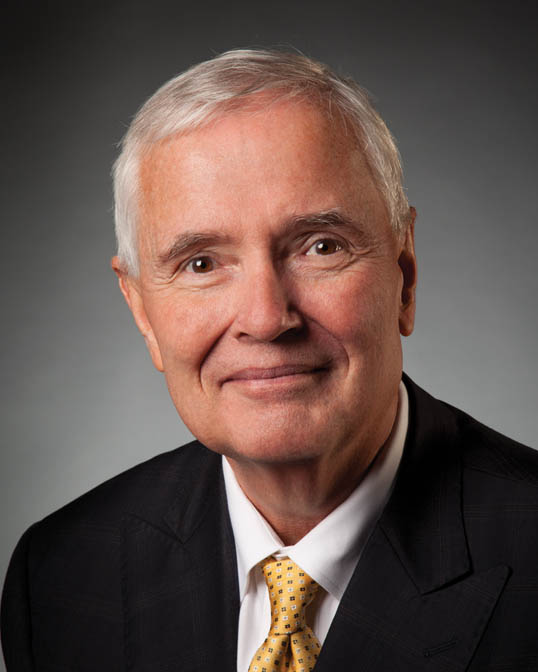DEAR FELLOW SHOCKERS, this column of mine has opened the On the Hill department of The Shocker magazine for two issues now. On the Hill is a standing section of the magazine that covers news about Wichita State University.
Typically, the department features a student profile and carries information about the Greek community here at Wichita State, among other Shocker news and information articles on the last page of the section, in Gleanings. So far, so good.
Perhaps it's too bad this university news department is called On the Hill. That's because “On the Hill” offers up an image of the university that needs updating.

It's a term that implies a sort of splendid scholarly isolation, an ivory tower, separated from the hustle bustle of the community. That was true, at least geographically, in our earliest days, when our founders could see for miles from the Fair Mount.
Today, we have a different outlook on higher education. Our WSU alumni, students, faculty and staff are deeply involved in our university community, of course, but also in the wider world. Our vision for Wichita State is to be “internationally recognized as the model for applied learning and research.” That won't happen without adopting a global perspective.
Higher education has gone from being a thing on the side – that place you sent your children to for four years where they learned to be an adult – to the center of the action.
And not just for traditional 18- to 22-year-old undergraduates. Research universities are now serving as key economic drivers for regions and nations. There are different expectations of us in higher education now than there were before.
It has been common in higher education to talk about the three-legged stool of teaching, research and service. Those facets are being redefined as learning, applied research and engaged service.
The world beyond our campus – including prospective students and their parents, as well as employers – is telling us that what students actually learn at university is far more important than what they are taught. Learning is a collaborative process that involves both students and professors.
We are regularly being asked: What have our graduates learned? What can they do with that learning? How can they use what they have learned to contribute to society?
We need to adapt – and we are adapting – to these greater expectations for us from the wider world.
When it comes to research, we know the importance of basic research. It is the foundation of innovation and change. Yet, basic research takes time and money, and the reality is that what much of the world is saying to us in higher education today is this: “I have real problems happening now. Use your research skills to help me solve them.” This compelling need for applied research is what's driving university partnerships with business, including those of our Innovation Campus.
The third element is service. When I was a young faculty member here at Wichita State in the 1970s, I would go give a couple of speeches, conduct a workshop, write it down on my annual evaluation and my department chair would say, “Good job; you did your service.” We'd check the service box off and move on.
Yet again, the world at large is demanding more of us in higher education. They want us to be engaged with them on an ongoing basis as partners in finding and developing solutions to real world issues.
So we have moved from teaching, research and service to the expanded concepts of learning, applied research and deep community engagement. This is a different kind of notion of what higher education is about. I would argue that much of the frustration that people feel with regard to higher education, including the budget cuts that we are seeing in the legislature, is because we in higher education have not been effective in responding to these changes that the wider world is asking us to make.
In higher education, we have been debating for years about general education versus specialized education. This debate, which was already raging when I came to the academy more than 40 years ago, isn't relevant in business, government or nonprofits – all of which are focused on problem solving. They don't really care whether universities graduate generalists or specialists. What they want is a versatilist.
What's a versatilist? It's someone who has enough depth of knowledge to contribute something of value to every meeting and assignment; someone who has the breadth of intellectual, cultural and social skills needed to be able to work effectively with a diverse range of people.
It isn't one or the other. It's not being either a generalist or a specialist that is in demand; it is a blend. Here at Wichita State, we are working together to offer opportunities in learning, applied research and engaged service that will help ensure that our graduates have the best blend of abilities.
That they will possess not only the ability to add value to their lives and in society, but also the abilities to learn, to communicate and to work with people not like themselves. This is the kind of graduate the workforce and our wider world needs.
Our outlook is different these days in higher education. At Wichita State University, we must focus our time, efforts and precious resources with an Off the Hill view to bettering our south central Kansas region – and beyond.





